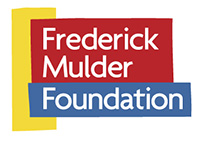Women’s narratives of attending Playback Theatre for refugees and asylum seekers: towards new ways of seeing, feeling and being with others.
FACILITATORS
University of Plymouth
Kate Glover
Jacqui Stedmon
Tarte Noire Women’s Playback Theatre Company
Alison Fairlove, Amanda Brown
Corresponding author at: Doctorate in Clinical Psychology, School of Psychology, Plymouth
Annie Mitchell (also Tarte Noire)
Report Published: 2016
DOWNLOAD THE FULL RESEARCH ARTICLE (PDF)
ABSTRACT
This research explored the stories of Arabic Muslim women who attended Playback Theatre (PT) sessions within a women’s community group in a service for asylum seekers and refugees. Eight semi-structured interviews were analysed using narrative methodology. Five themes were identified: ‘deciding whether to tell’, ‘sharing stories’, ‘empathy and understanding’, ‘emotional release’, and ‘personal growth’.
The analysis focused on the ‘personal growth’ theme, which included reflections on cultural issues and comprised three sub-themes: new ways of seeing, feeling differently, new ways of being with others. We noted links between what happens in PT and what is thought to be effective in established therapies and argue that PT can make a positive contribution to asylum seeker and refugee women and their wider communities.
For the women within the current research, it seemed that playback enactments shifted the told story from an individual to a shared representational context , which fostered personal growth and shared connections which were experienced as positive and beneficial. This highlighted the potential value of community interventions outside of clinical settings.
CONCLUSION
The themes identified in this analysis combine to create an overall story of PT as a community approach where the telling and hearing of stories takes place in a safe and supportive context thereby facilitating emotional release and an experience of personal growth and change. The stories told about PT mirror some aspects of formal therapies that have a proven evidence base. For example, the stories described an emotional release, the development of personal reflection and insight, and personal transformations such as becoming more confident or patient. These helpful aspects of PT can be understood within psychological frameworks such as psychodynamic and narrative therapy. However, unlike formal interventions, PT offers the continuity of friendships and support within a real community setting. This form of supporting others is in line with community psychology perspectives which help mobilise resources within communities as a way of providing prevention and intervention strategies.

